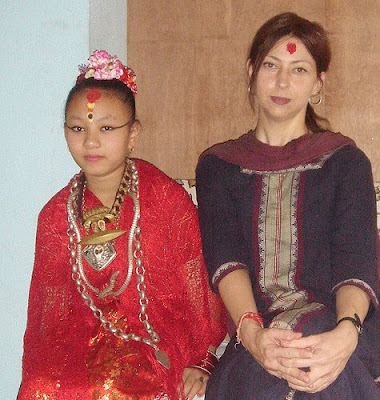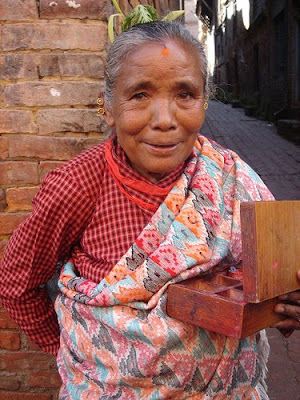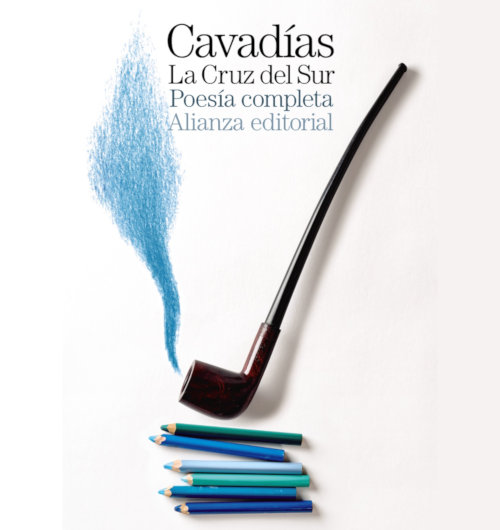Bhaktapur, Nepal
Nepalis are generally easy people (unless they are agitating for a separate Nepali-speaking state in Sikkim, I suppose....or unless they are
 extorting money from local businessmen....or sacrificing animals...or kidnapping wealthy Indians...or beating up Tibetan protestors. Okay, I'm out)
extorting money from local businessmen....or sacrificing animals...or kidnapping wealthy Indians...or beating up Tibetan protestors. Okay, I'm out)... well, what I was going to say before my generalization was so rudely interrupted, was "Nepalis are generally easygoing people and Nepali is an easy language to learn." It's like a softer Hindi, with all the sharp edges rounded off. Just put Os where Hindi has As, Cha or Ho where Hindi has Hai, Na where Hindi has Nahin, and the suffix -nus where Hindi has -jiye and there you go - you're speaking Nepali.
(Not exactly, but pretty close.)
Oh yeah, and to speak Nepali, you have to drop the obligatory bossy attitude of Hindi. And the nasality. You have to smile to speak proper Nepali. You have to look down your nose at someone to speak proper Hindi.
It's Nepali and Hindu new year, and just days after the election, the mood here in the traditional Newar town of Bhaktapur is just delicious. Today was the last of a luxurious week of
 holidays declared because of the election. The new year's tradition is to wear a brand-new sari or other outfit (for unmarried girls, that is anyone under 20, it's a new kurta-salwar set; for young men it's a WWF t-shirt and brand new stonewashed jeans) - wear your new new year's clothes and stroll around town arm in arm with family, chatting and stopping on the corner to eat homemade ice cream. (It looks homemade to me... I stick with the juju dahi or King's Curd for which Bhaktapur is famous.)
holidays declared because of the election. The new year's tradition is to wear a brand-new sari or other outfit (for unmarried girls, that is anyone under 20, it's a new kurta-salwar set; for young men it's a WWF t-shirt and brand new stonewashed jeans) - wear your new new year's clothes and stroll around town arm in arm with family, chatting and stopping on the corner to eat homemade ice cream. (It looks homemade to me... I stick with the juju dahi or King's Curd for which Bhaktapur is famous.)Naya barsha ko shubh kamana! will win you a lot of points right now. It means "happy new year."
First of all, you have to get used to addressing hierarchically, and as family. There is a definite pecking order involving age, caste and other status markers; but for foreigners, who this mostly means acknowledging seniors, peers and youth.
Elder men (elder to you) are addressed as Dai, or perhaps Kaka (uncle). A man your age or younger is Bhai. A very elder man is Huzoor-bho (respected father). Elder women are Didi (big sister), Kaki (auntie) or Huzoor-amma (respected mother) , very elder women are Ajima (grandmother), and young ladies are Bahinee (daughter).
"Huzzoor!" is the most respectful way to answer the phone or address an elder or superior. It just means something like, "respect." Otherwise, people normally say "Namaste" here to foreigners. People here actually say namaste and put their folded hands, up like praying. Only a few people in tourist places do that in India.
Let's start with practical things.

"Kalaam koti yo?" means, "how much is this ink pen."
Common numerical responses include "das rupiyah," (ten rupees)
"pandara" (pron. 'pundarra') = 15 rupees
"bis" (beese) = twenty
"tis" (tees) = thirty
Ek sau (one hundred) or Ek sau pachas (150).
"Mahango chha!" means, "your price is too expensive!"
"Duitaa (dwee-taa) kalaam tis rupiyah dinus." = Please give me 2 ink pens for thirty rupees.
"Shasto price dinus" = give me the cheap price.
The shop owner may counter with "Yo shasto price chha." ("This is a cheap price." To which you retort indignantly, "Shasto chhaina!" --(it's not cheap! )
Theek (pron. teak, like teakwood) chha! means, okay, all right or good!
Theek chhaina (pron. "chinaa") naturally means, "this is not okay." I find myself saying this more often than I would like....
and the classic Nepali phrase,
"Ke garne? " (pronounced "kay garnay")
means, "what to do?" and translates as, "I give up - it's someone else's job. " Or, "this is NOT going to get fixed or done today so relax and forget about it."
Dinus (deenus) is polite for "please give." Linus (lee-nus) is polite for "please take." In "street" Nepali these polite forms are little used - there are more truncated forms - but I prefer them. I figure as a newcome to the language I should be more polite.
Oh, that reminds me of the useful polite command forms, which usually end in -nus (noose).
Bussnus = Please sit. I often have to use this as shopkeepers tend to jump up the second they see you even look in their doorway.
Sodhnnus = please listen.
Bolnus = please tell me
Lekhnus = please write. And so on.
"Nepal maa, saarbhai jaan dehri ramro" = Here in Nepal, everyone is very good. Another diplomatic point-scorer.
"Taxi khali chha?" = is this taxi free?
Answers: Chha! (yes it is!)
Chhaina! (pron. chinaa) - (no it's not!) - and these are usually uttered with an exclamation point.
"Maa airport jaanchu" means, I am going to the airport.
"Meter maa theek chha?" means, "will you go on the meter?"
"Tapai ko naam ke ho?" = what is your name. But for children, you should use the diminutive "Timi lai naam ke ho?"
"Yo deva naam ke ho?" is one I use all the time when visiting temples. It means, "What is the name of this deity?"
"Yo bus Bhaktapur jaane?" means, is this bus going to Bhaktapur?
Bhai, yahe (yahay) rokiyay is a polite way to tell your taxi driver "stop here, brother."
"Bholi parsi chhaina -- Ahilay! Ahilay!" is very useful indeed. ("Tomorrow tomorrow NO - TODAY! TODAY!)
"Tapai lai vetera malai dehri kusi lagyu" is "I am very pleased to meet you."
More practical ones:
Koti kero bundho garne? (what time do you close here?)
and
Koti kero kullchha garne? (what time do you open?)
Of course, you have to understand the answer - but everyone knows number up to ten at least. (Nothing opens before 10, or Das Bhaje.)
Speaking of which, it's ahht bhaje (8pm) and time to close here in sleepy Bhaktapur.














4 comments:
dear sirensongs,
that is really a nice picture of you there with whom i presume to be the Kumari Devi.
i have a question. i have the pimsleur's Hindi compact which is ten lessons of about half hour each. can i go ahead and listen to it and learn basic hindi? and then apply what you said about rounding off the sharp edges and your other tips, and i can possibly end up speaking nepali?
thanks. and all the best.
Here's two Nepali words, learning them first might be helpful.
"murkha" and "ghamandi"
@Umesh: Well, I can't "learn" them unless you tell me what they mean....?
Thanks. And I welcome corrections to what is no doubt my very simple and crude Nepali.
@Kerinchi: Not exactly...i was exaggerating for effect. ;-) However, if you learn Hindi first, Nepali will be a cinch - like falling off a log.
Nepali first to Hindi is more of an uphill climb.
Another difference is that Nepali has far more Sanskritic based words and Hindi has (much to the distress of Hindi purists) incurred lots of loan words from Urdu and Arabic.
For native IndoEuropean language speakers, Sanskritic words are more 'intuitive' than the Persian or Arabic based words.
@Umesh: I think I already know 'murkha' - but I learned it with a different spelling - it means 'fool' or chicken (maa murkha hoinaa, maa paryatak hoinaa = i am not a fool and i am not a tourist).
Post a Comment